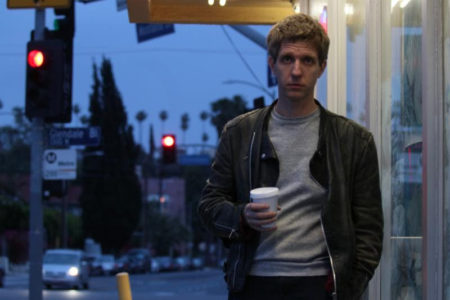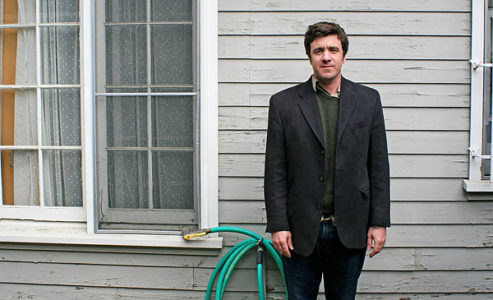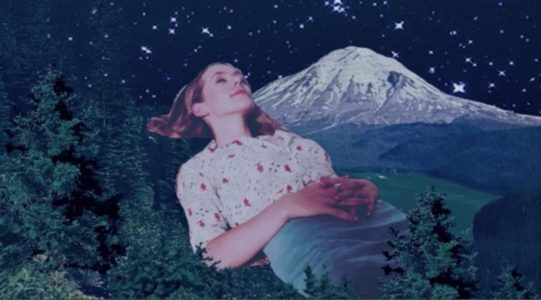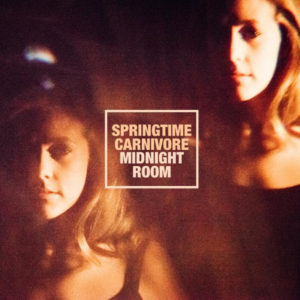Interview: Aquarium Drunkard’s Justin Gage
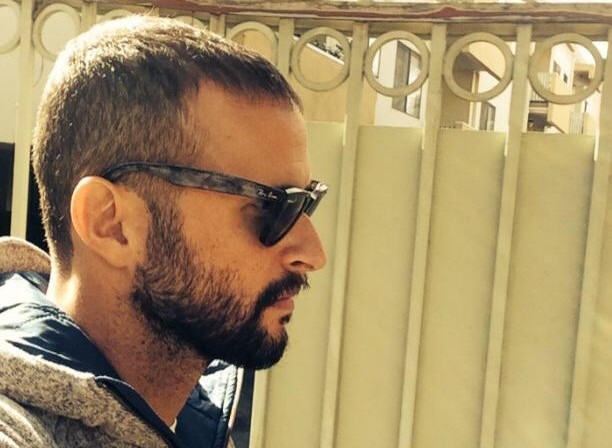
Justin Gage is the founder of the influential music blog Aquarium Drunkard and label Autumn Tone Records. He hosts a weekly radio show on Sirius XM’s Sirius XMU (channel 35), where he promises an eclectic mix each week of whatever he’s been listening to at the moment, regardless of era or genre. We reached Justin at his home in the Echo Park neighborhood of Los Angeles:
Northern Transmissions: When and how did you initially begin writing about music?
Justin Gage: It goes back about twenty years, at the end of my freshman year of college. I was a music editor for the school’s newspaper and that’s where I began penning my first reviews and interviewing artists.
NT: What was the local music scene like when you started?
JG: Following my freshman year, I transferred to the University of Georgia in Athens, which has always been a big music town. While I was studying there in the mid-to-late 90s, you had Neutral Milk Hotel, Olivia Tremor Control, Five-Eight, Macha, Vic Chestnut, and the list goes on and on. So there was definitely a great thriving music scene in Athens while I was there, and there still is one today. It definitely helped shape my tastes.
NT: What was your progression from college to the success of Aquarium Drunkard today?
JG: After college, I worked at couple of dot coms and did technology sales while doing music stuff on the side. Aquarium Drunkard, the radio show, and the label all became full-time around 2006, while supplementing it with different freelance work and photography.
NT: It seems that today everybody has a blog and everybody’s a critic. How do you manage to be heard amongst all the other noise?
JG: There are tons of music-centric websites now, not to mention music discovery driven by social media — Facebook, Instagram, Twitter and beyond. I don’t think people really need to work as hard to find music as they did even five years ago. What we’re trying to do with Aquarium Drunkard is just explore and comment on what we’re interested in at the time, no matter the era or the genre, and it seems to have connected with a good amount of people.
NT: What are the essential tools that someone should possess to be as successful as you’ve been with your projects?
JG: It’s hard to nail down exactly how someone would emulate what we’ve done; as it’s been a very organic road. I started by setting up a blog through Google BlogSpot, and it’s really grown naturally from there, so it’s difficult to nail down how one would replicate that. In terms of Aquarium Drunkard, it’s always been very much based on what I and a handful of writers are passionate about at the time, despite whatever is fashionable or trendy at the moment.
NT: So it sounds like you’re a true believer in focusing on your real passions versus chasing the ever-changing trends?
JG: That’s what worked for us, and honestly that’s the only way I could do it. With our internet culture today things move so fast — I wouldn’t be able to, nor care to, try to keep up with whatever the latest micro-genre trend is.
NT: Was it challenging setting up your own record label, and how much did your background in finance and marketing help you?
JG: It’s essentially been trial and error, really just figuring it out one release at a time. I never worked for a big label prior to starting Autumn Tone; I saw a niche that needed to be filled and different artists that were not being represented. I felt that I could help with that and try to figure out different distribution models, marketing strategies, and all of that jazz that is very basic but is integral to a successful release. My previous work in marketing helped by being able to project manage and being able to really multi-task.
NT: The Orwells (who Gage discovered in 2011, releasing their debut LP) gained a ton of exposure in the last year from their explosive performance on David Letterman. What was your reaction when you first saw their performance?
JG: I thought it was funny; I got a kick out of it. We started working with those guys when they were 16, so it’s been really fun to see their rise over the past several years. I grew up watching David Letterman; so in terms of Late Night exposure, it’s the brass ring.
NT: With a never-ending flow of music coming by your desk every day, how do you stay inspired and not wake up saying “oh no, not another band”?
JG: I have a lot of interests outside of music and I think those interests ultimately keep me inspired, and play back into what I do day-to-day with music. I think you have to keep your life and your interests varied. I stagnate creatively if I’m not being sparked and turned on by different things outside of just digging through record bins and searching out new sounds. I find that, creatively, my other interests are what help keep the juices flowing.
NT: When you receive new bands at Autumn Tone, what do you listen for? What puts a band ahead of the other ones in your mind?
JG: Obviously there’s no exact science, but I think that you can listen for the soul within the song. I listen for how it’s being performed and delivered, what it’s saying, and how it’s produced. It can be something from a scrappy 4-track recording or from a barely professional studio environment, if I can hear the soul that’s what does it for me.
NT: You’ve hosted a very successful radio show on Sirius XM. Was the radio your initial source in finding new music when you were younger? What kind of radio did you listen to?
JG: I certainly listened to the radio a lot when I was young, but my main musical influence was probably my dad’s personal record collection. I listened to everything from the college stations to the jazz and blues stations that would pipe in from around the city. As an adolescent, there was something almost other-worldly about the radio, whether I was listening to Minor Threat or jazz.
NT: You mention Minor Threat, Aquarium Drunkard has a real grassroots feel, was the DIY movement a direct influence on your approach to the website?
JG: I believe so. Reading zines and hearing about labels like Dischord was very inspiring as a young person. I think something about that music, both sonically and their overall approach, really spoke to me at the time. It stayed with me.
NT: What’s been one of the biggest changes in discovering new music?
JG: In the early 90’s, college radio was very important in talking about these more underground movements. When you heard about shows, it was usually through word of mouth, I think it was much harder to find out about music, but the search is something that made it really special. Today, if a 15 year old kid is interested in Frank Zappa, they can go on YouTube and be lead down a rabbit hole of similar music through videos. Back then, you had to really search stuff out and actually talk to people, talk to record store clerks, or your friend’s older brother. There was an amount of work that went into discovering music, and at the same time, that “work” helped make it feel special.
NT: So would you say that technology is more of a blessing or a curse when it comes to accessing music?
JG: I think the ease of access to all this music is fantastic. I will say this though, I don’t feel like we listen to albums the way we used to. For example, twenty years ago, if you bought a CD, it was likely $18.99. Paying nearly twenty dollars for a CD meant that you couldn’t buy a lot of records unless you had a lot of money, so you were forced to really think about what record you were going to buy, and then you would listen to it over and over again. With that constant repetition, you got to know that music really well. Now, for $10 a month, you can have a Spotify account and listen to the entire Count Basie discography. If you decide you don’t like the first movement of a track, you can skip to the next one and so on and so forth, so I don’t think we’re forced to really listen to music in the same way as in the past. But that said, I think the access to all disparate genres of music today- and the ease of that access – is fantastic. Today you don’t have to live in New York City, Chicago or any big metropolitan area to discover music. You can be living in a small town in Iowa with an internet connection, and with a little amount of work, you can discover an enormous amount of music. And that can be life changing.
NT: Which five albums are inspiring you these days?
JG:
William Tyler – Lost Colony
Kim Jung Mi – Haenim
Rob Jo Star Band – S/T
Kenny Knight – Crossroads
Davy Graham – Large As Life And Twice As Natural
NT: Thanks a lot for taking the time today to speak to us!
JG: My pleasure.
Interview by Stewart Wiseman
Latest Reviews
Trending
Tracks
Advertisement
Looking for something new to listen to?
Sign up to our all-new newsletter for top-notch reviews, news, videos and playlists.





